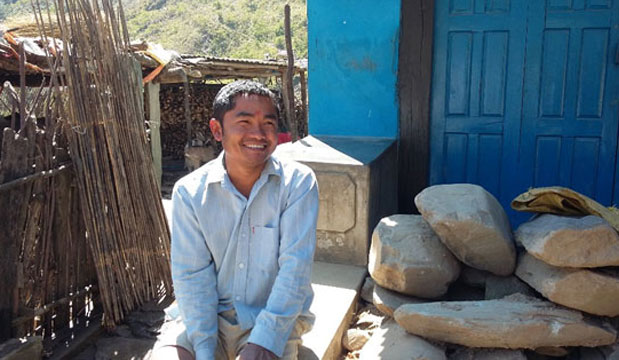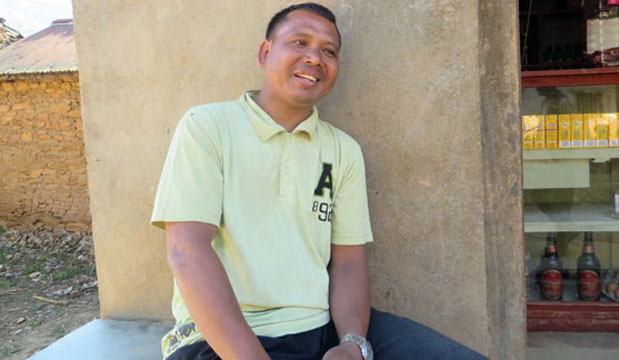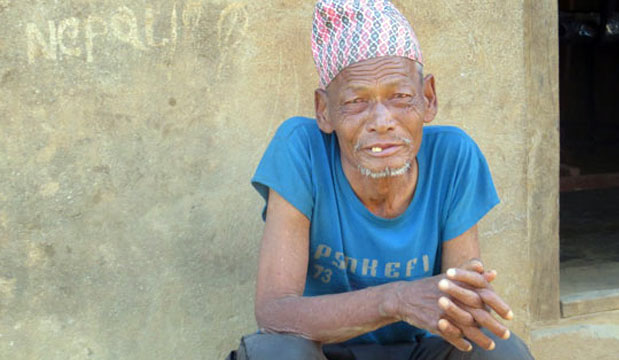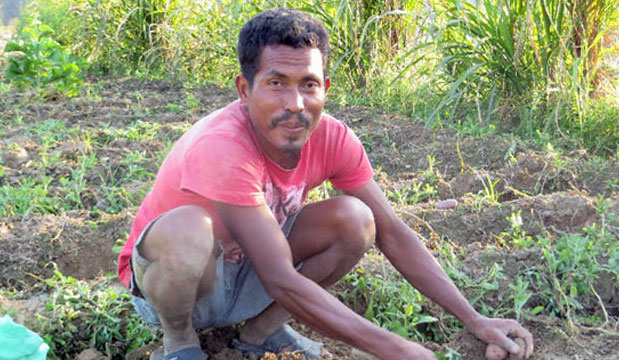By Sangita Dandekhya, ICIMOD on 10 Apr 2015
Just as in the other hilly districts of Nepal, the out-migration by the youths in Nuwakot, mainly by the male members of the families, has been accelerating over the last decade. The census data of 2011 shows that Nuwakot’s overall population decreased by approximately 10,000 people, and male population decrease accounted for 90% of that reduction. The primary destinations for migrants are usually the Gulf countries, South Korea and Malaysia, and a very few go to European and Western countries as well. The migrant workers are mostly engaged in low-paying labour work: they work as security guards, unskilled labourers in construction sites, drivers, servants, caregivers, maids, etc. Poverty and unemployment seem to be the main drivers of the increased migration from the hills.
During this visit to Nuwakot, I was able to talk to a few people who had worked abroad and they shared with me their stories of the challenges of working in foreign lands.
Remittance benefits: increased cash income and increased resilience against landslides
The migrant workers’ stories are very complex: most of the work they do involves difficult labour, prolonged work hours without enough breaks to even eat properly, having to put up with poor accommodation, etc. On the other hand, the work abroad has significantly augmented the cash income of the farm households in the remote villages in Nuwakot. This added income is used on extra expenditures like education, healthcare, food, etc. The additional income is also used by the families to buy new plots of land; some have even built new houses in the urban centres and in the district headquarter, Bidur Municipality.
 Bijay Thapa Magar talks about his experience in South Korea
Bijay Thapa Magar talks about his experience in South Korea
Bijay Thapa Magar talks about his experience in South Korea
Bijay Thapa Magar had migrated to South Korea, where used to worked as a driver. He returned home after he met with a road accident. He is not sure whether he should stay back in Nepal or return to South Korea. According to him, the main reason that he went abroad to work was the unemployment and deep-rooted poverty prevalent in his village.
A Nepali policeman who worked as a security guard in Malaysia
In Malakot, Suryamati VDC, 20-30 households out of the total of 100 households had one or more earning members working abroad. Mr Rai, a 35-year-old man from the village, had migrated to and worked in Malaysia two years ago. Before he left for Malaysia, he had worked as a policeman in Nepal, for eight years.
The out-migration trend increased in this district after 2002 because there was a high demand for labourers in places such as Iraq. Rai was fascinated with the way his friends and brothers were earning good salaries in Iraq. “The salary paid here in Nepal is so-so,” he said. “The income to be made is higher abroad.” He eventually decided to quit his job in the Nepal Police because he was not satisfied with his monthly salary. He paid Rs two lakhs to a Kathmandu-based manpower company, which got him a job as a security guard in Malaysia. He used his lifetime savings and took out some loans to put together the fees he needed to pay to the manpower company for getting him the job in Malaysia.

Mr Rai, who recently returned from Malaysia to his village after two years
According to Rai, he earned Rs 45,000 a month from his job abroad. The company took care of his accommodation, but he had to spend his own money on food. He spent two years in Malaysia and returned home just a month ago. He seems to be relatively satisfied with how things turned out for him in Malaysia and plans to return to the country.
Seventy-three-year old Krishna Bahadur Rai’s son migrated to Qatar nine years ago. He says that the money sent by his son has helped his family to cover his family’s extra expenses and he has also bought some plots of land near Battar Bazaar.

A local farmer whose son out-migrated nine years ago
Interestingly, I learned, the remittances had increased the people’s capacity for adapting to the effects of landslides in Nuwakot. For example, the inhabitants of a settlement prone to landslides, Kimtan VDC, one of the remote VDCs, had moved and settled in a new settlement, Kimtan Tole, which is very close to the district headquarter, Bidur Municipality. The resettled households are doing well economically owing to the money sent home by the out-migrant labourers.
Migration versus cash-cropping: a farmer’s inspiring story
Ramesh Rai migrated to Dubai, UAE, and worked as a security guard for about six months. He had to return home because his health worsened due to his long working hours. Ramesh Rai says that he had to work continuously for 12 hours a day, and that he didn’t even have time to cook and eat properly; such a lifestyle resulted in his very poor health. The job as a security guard paid a very low salary, despite the long hours. He thus decided to return home and live with his family.
Ramesh Rai owns only 3 ropanis of bari (a sloppy, rain-fed field). He has leased 25 ropanis of khet (flat field) that belongs to Newars and Brahmins in Battar Bazaar. He started cultivating vegetables on the leased land five years ago, after he returned from Dubai.

Ramesh Rai, who started cash-cropping in his own village
Today, he harvests three crops a year and has cultivated various seasonal vegetables and paddy on the land. Half of the total paddy harvested is paid to the landowner as payment for leasing the land – approximately three bags of potato yield a year. The seasonal vegetables are sold in the nearby markets.
To cultivate potatoes in that field, he invested around Rs 1.5 lakhs, and he earns an income of around 2.5 lakhs in four months. The investment includes the cost of seeds, chemical fertilisers, compost, manure, renting a tractor to plough the field, pesticides, labour charges and transportation charges.
He makes a good earning, of approximately Rs 2-3 lakhs annually, from vegetable farming. The income from the farm is used to meet his household expenses and on the education of his two daughters.
The out-migration by the villagers comes with both costs and benefits. The remittance has improved the economic status of poor villagers and increased their resilience in some cases, but the workers have to live miserable lives abroad and work backbreaking hours. Furthermore, the out-migration has also depleted the active work-force numbers in the hills.
